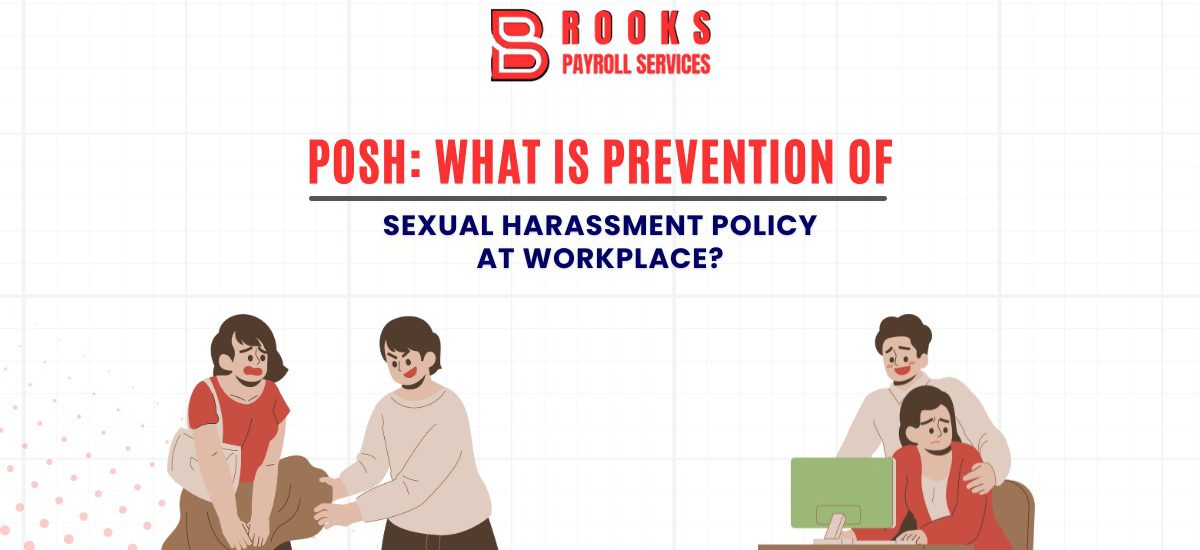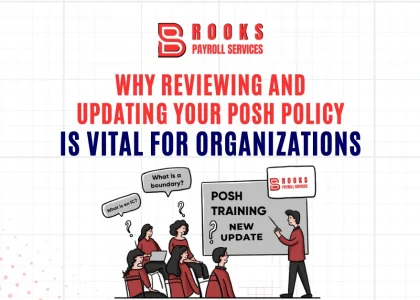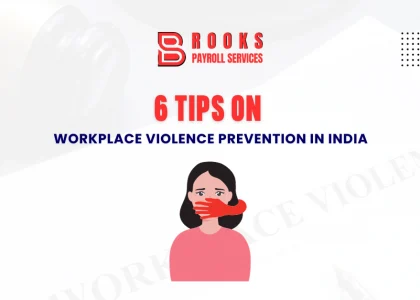Introduction to POSH
Workplace harassment, especially sexual harassment, is a serious issue that impacts employees’ mental well-being, productivity, and organizational culture. The Prevention of Sexual Harassment (POSH) policy is a key framework designed to create a safe and respectful work environment. In this article, we will explore what POSH is, why it’s important, and how organizations can implement it effectively.
What is POSH Policy?
POSH stands for the Prevention of Sexual Harassment, a policy framework aimed at preventing and addressing sexual harassment at workplaces. It ensures that employees, particularly women, feel safe and protected while at work. POSH policies are legally mandated in many countries, including India, to protect the rights of employees against inappropriate behavior and harassment.
The Evolution of POSH Law
Vishaka Guidelines – The Foundation of POSH
Before the enactment of the POSH Act, sexual harassment cases were governed by guidelines set by the Supreme Court of India. Known as the Vishaka Guidelines, they were established after the infamous Vishaka vs. State of Rajasthan case, which highlighted the need for a comprehensive policy to prevent sexual harassment in the workplace.
Sexual Harassment of Women at Workplace (Prevention, Prohibition and Redressal) Act, 2013
In 2013, India took a significant step by enacting the Sexual Harassment of Women at Workplace Act. This law defined sexual harassment, established a procedure for complaints, and laid out strict punishments for offenders. It has since become the foundation for POSH policies across organizations in India.
Key Objectives of POSH Policy
A POSH policy typically has three primary objectives:
- Preventing Sexual Harassment: The policy aims to prevent incidents by creating awareness and educating employees.
- Protecting Victims: It provides a safe platform for victims to report their experiences without fear of retaliation.
- Ensuring a Safe Work Environment: POSH ensures that workplaces remain respectful, free from discrimination, and promote equality.
Types of Sexual Harassment Recognized Under POSH
Quid Pro Quo Harassment
The first type of harassment recognized under POSH is “Quid Pro Quo,” which translates to “this for that.” It involves an exchange where someone in power demands sexual favors in return for job-related benefits like promotions, raises, or even continued employment.
Example: A manager might hint that an employee could receive a raise if they engage in inappropriate behavior with them.
Hostile Work Environment Harassment
The second type of harassment under POSH involves creating a work environment where an individual feels uncomfortable or threatened due to unwelcome sexual advances, comments, or actions.
Example: Constant inappropriate jokes or sexually suggestive comments can create a hostile and uncomfortable workspace for employees.
POSH Policy Implementation at the Workplace
Implementing the POSH policy effectively requires careful planning and the commitment of the organization’s leadership. Here are the critical steps for a successful POSH policy implementation:
Setting up an Internal Complaints Committee (ICC)
The establishment of an Internal Complaints Committee (ICC) is one of the most important steps. Every organization with more than 10 employees must set up this committee, which is responsible for addressing complaints of sexual harassment.
Training and Awareness Programs
Regular training sessions and workshops are necessary to educate employees on what constitutes sexual harassment, the complaint process, and the consequences of violating POSH guidelines.
Confidentiality in Complaints
Confidentiality is crucial when dealing with complaints to ensure that the victim’s dignity is protected and to prevent further harassment.
The Role of the Internal Complaints Committee (ICC)
Composition of ICC
An ICC should include a senior woman employee, two other employees, and an external member with experience in dealing with sexual harassment cases. This balanced structure ensures that cases are handled objectively.
Responsibilities of ICC Members
The committee’s responsibilities include receiving complaints, conducting investigations, and recommending appropriate actions based on their findings. ICC members must remain neutral and follow a fair process.
Steps for Filing a Complaint Under POSH
Victims can file a complaint in writing to the ICC within three months of the incident. The ICC will then begin the investigation, which must be completed within 90 days.
Ensuring Fair Investigation
To maintain fairness, the ICC must adhere to strict guidelines. Both the complainant and the accused must be given equal opportunities to present their side of the story, and the process should be free from bias.
Consequences of Violating POSH Policy
Employees found guilty of sexual harassment can face severe penalties, including termination, demotion, or legal consequences. Moreover, organizations that fail to implement the POSH policy can face fines and reputational damage.
The Role of Employers in Preventing Sexual Harassment
Employers play a vital role in preventing sexual harassment. By fostering a culture of respect, conducting regular training, and ensuring compliance with POSH, they can create a safer and more inclusive work environment.
Challenges in Implementing POSH
Cultural and Organizational Barriers
In some organizations, cultural norms or fear of retaliation may discourage employees from reporting incidents of sexual harassment. Employers need to address these barriers by promoting a culture of openness and support.
The Future of POSH in Workplace Culture
The POSH policy continues to evolve with changing workplace dynamics. As more organizations adopt these policies globally, there’s hope that awareness and prevention efforts will become more widespread, leading to safer work environments for all employees.
Conclusion
POSH is an essential framework for creating a workplace free from sexual harassment. By implementing a robust POSH policy, organizations not only comply with legal requirements but also build a culture of respect and safety. It’s time to prioritize the well-being of employees and make every workplace a safer place for everyone.
FAQs
- What is the role of the POSH policy in a workplace?
The POSH policy prevents and addresses sexual harassment in the workplace, ensuring a safe and respectful environment for employees. - What is Quid Pro Quo harassment?
Quid Pro Quo harassment involves a person in power demanding sexual favors in return for job benefits. - Who can file a complaint under POSH?
Any employee who has experienced sexual harassment can file a complaint with their organization’s Internal Complaints Committee (ICC). - What is the penalty for violating POSH?
Violators can face termination, demotion, legal action, and organizations may face penalties for non-compliance. - How can organizations promote awareness of POSH?
Employers can promote awareness by conducting regular training and workshops, and fostering an open and respectful workplace culture.









